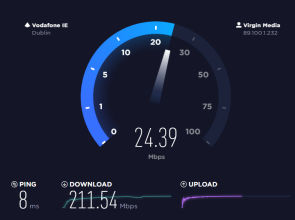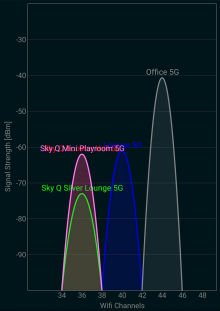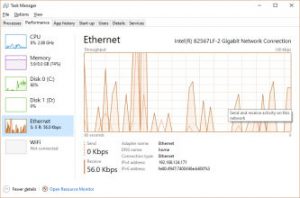Having slow WiFi, or broadband problems that make your internet connection in your home unreliable, is a challenge that most of us in Ireland have faced. Thankfully, in many parts of the country, it is no-longer an unsolvable riddle. However, … Read More
WiFi
Network, WiFi, Internet Connection
Many times these days when somebody says that they’ve got a slow computer, the root cause is not actually the computer itself at all. Whether you’re shopping on Amazon, eBay, DoneDeal or Groupon, watching a movie on Netflix, or even reading your gMail, they’re all “in the cloud”. This is just industry jargon for them running on servers on the Internet, not locally on your computer, tablet or smart phone. They depend on your local network or WiFi performance, and Internet connection.

Regardless how fast your iPhone, PC, Mac, or iPad are, nothing that relies on the Internet will be fast if your home network, WiFi or Internet Connection are slow. Unfortunately, there is a huge variance in the availability of high speed broadband in Ireland. You may have heard of the “digital divide”, well it is all too real in the green isle. Broadband providers will sell packages advertising speeds “up to” a particular speed, but many of them cannot supply anywhere close to the named speed. If you only have access to copper based phone lines and happen to be too far away from the local exchange, you may only be able to get very slow speeds.
Upload Speed
The advertised speeds often only mention the “download” speed and neglect to mention the very important “upload” speed. If you want to make an internet phone or video call over tools like FaceTime, Skype, WhatsApp you need a respectable upload or upstream speed too. If you want to upload photos or videos to Facebook, that too requires upload bandwidth. Some of the technology used by Internet Service Providers (ISP) like Asynchronous Digital Subscriber Line (ADSL) does not fully allow for full duplex connections, or simultaneous bidirectional traffic. This means that if you upload a video over your 1Mbps* upload bandwidth, your 15Mbs download speed is slashed too. (*mega bits per second)
In other cases, bandwidth is shared between subscribers. The more people near you that are using the same provider, the slower your connection becomes.
Understanding what the real options are for Internet connections near you is important before you get stuck in a contract. If Fibre broadband is available where you live, it is a very good choice in most circumstances. Thankfully, fibre rollout is happening across the country and is starting to reach more and more remote areas.

WiFi Performance
Even if your Internet connection is solid, your experience online can be dramatically slowed down by poor WiFi performance, configuration or a broadband router that is struggling. Conflicting signals, poor range and electronic noise can all impact the network performance. All these can produce that horrible spinning “buffering” signal in your movie or Spotify playlist.
Identifying the cause of your slow network or online experience takes a bit of time. You may need to survey your network to pinpoint the bottlenecks. Before investing in a new router, or signing up to a new ISP, it’s a good idea to talk to someone knowledgeable in the art. It may just be that another device on your network is using bandwidth without you knowing! When it comes to your internet connection, talking to your neighbours about what works for them, can also be very useful.

DeGeekIT can help you identify the root of your computer performance problems and help you identify the best solution. If you are changing Internet Provider or WiFi Router, call us first and find out what’s best for your needs. Empower yourself! Spending a bit of time and money with DeGeekIT will help prevent you from wasting money on poor computer purchases! Contact us today!
Book Appointment
